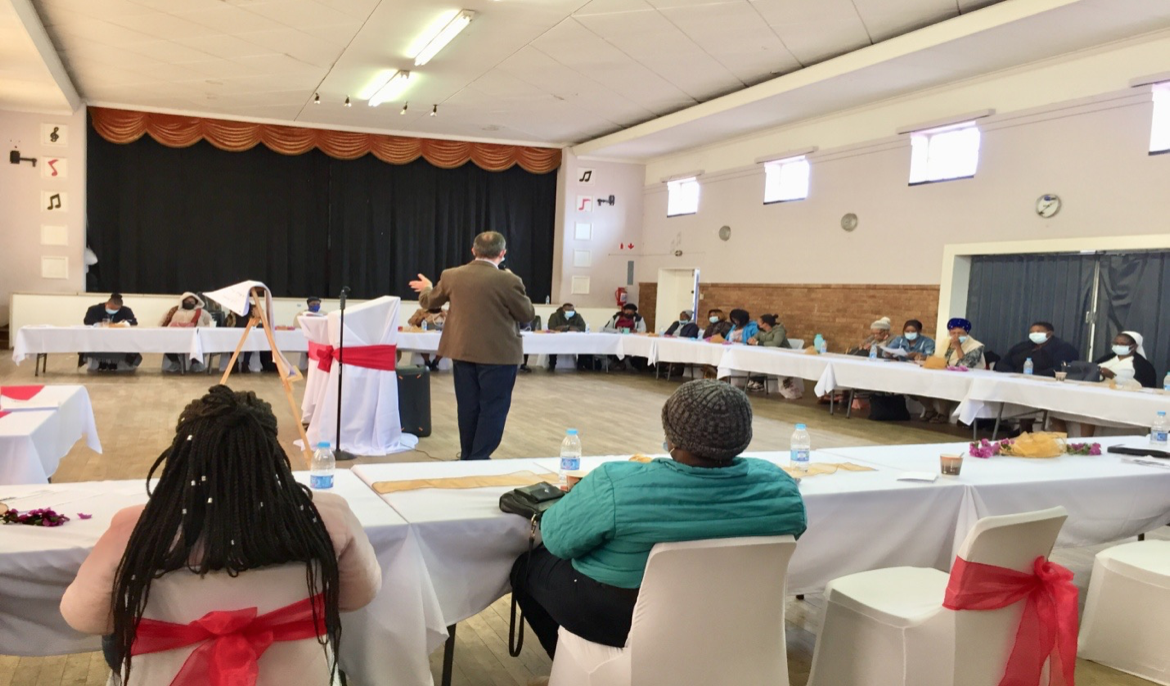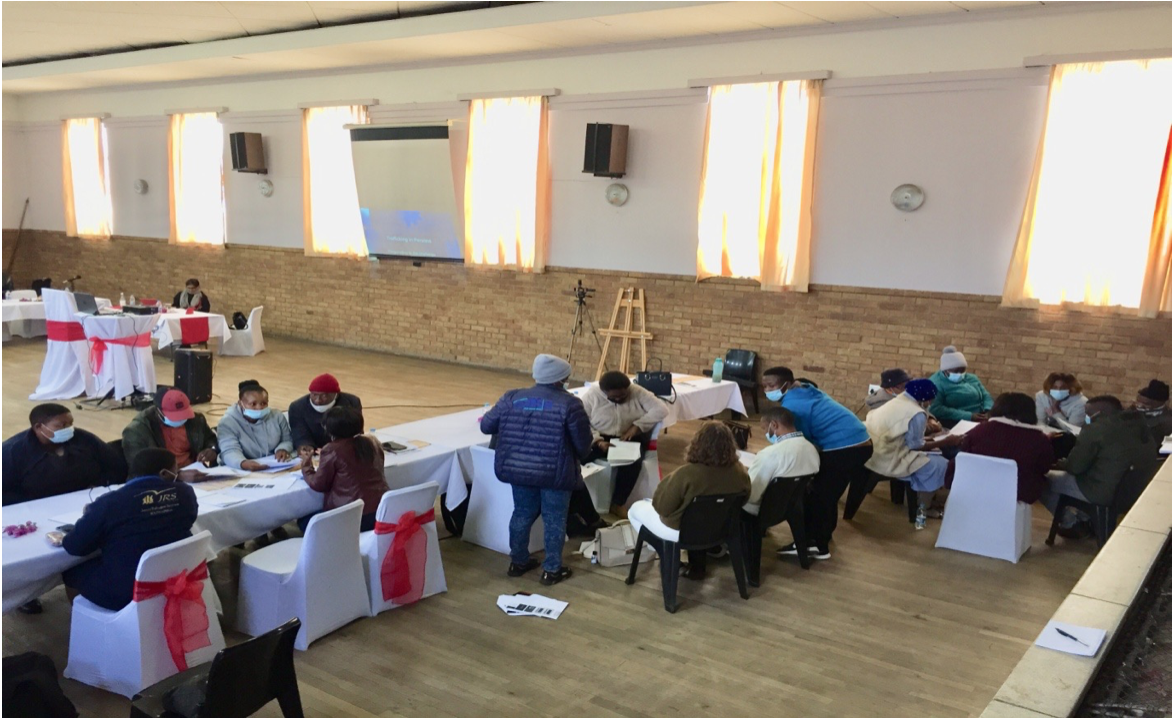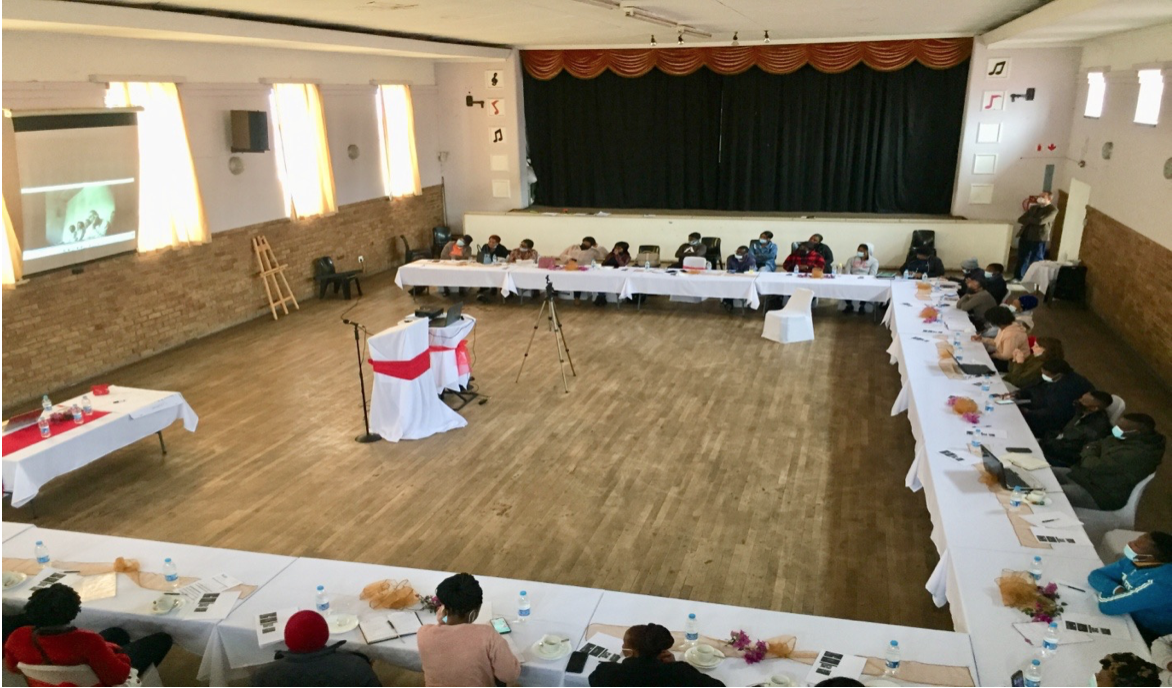
Two-day training session at SIHMA Legal Clinic St. Patrick La Rochelle
The SIHMA Legal Clinic at St. Patrick La Rochelle has had a good start since its establishment in September 2021, and it is already setting a very high standard in its operation and mission. The Legal Clinic was established with the mission to promote and protect the rights of human trafficking survivors through providing legal services, advocacy and networking. Besides this, the work that is done in the clinic also involves producing rich research that will help shape policies on counter-human trafficking, in addition to offering human trafficking training for key role players, government departments and civil society.
Human trafficking silently generates billions of dollars [1]. This is largely due to people being unaware of the crime, and actors who should be key role players in preventing human trafficking not being well-equipped enough to counter it. Countering human trafficking starts with understanding human trafficking. A better understanding will make it easier to create policies and implement preventative measures to fight this crime. South Africa being an origin, transit and destination country for human trafficking means that training is urgently required. Therefore, training on human trafficking is of paramount importance to the mission of the Legal Clinic.
TRAINING
To kick-start the mission of the Legal Clinic, a two-day training session was held at St. Patrick La Rochelle on 26 – 27 October 2021. The training sessions was conveniently held at the Parish of La Rochelle, where the new Health Clinic is situated. The Parish is already immersed in the community and sees a high level of need, especially from vulnerable and poor migrants who are potential victims of gender-based violence and human trafficking. It is anticipated that the health clinic may provide much needed medical services to this vulnerable group in the community.
A total of 35 healthcare and social worker members from the Catholic Health Care Association (Cathca) and the Jesuit Refugee Services (JRS) from around Gauteng were the first to receive training – a group of people we will be working very closely with. Healthcare workers are likely to come across human trafficking victims in their profession due to the health consequences that victims suffer in the process of exploitation [2]. Social workers also play an important role in the mental, emotional and psychological well-being of human trafficking survivors upon rescue. Therefore, these key role players need to be trained on this issue. The training was offered by the knowledgeable legal team of the Legal Clinic.

Participants divided into five groups of five people to solve case studies and identify circumstances of human trafficking.
The training focused on introducing the phenomenon of human trafficking to the healthcare and social workers by sharpening their senses to be aware of potential cases of human trafficking in their daily duties, as trafficking exists even in the most inconspicuous of cases. The training also focused on steps to be taken when human trafficking is suspected through learning about the Trafficking in Persons legislation. Furthermore, the participants were informed about other role players involved for the sake of networking and collaboration to counter human trafficking in South Africa.
TRAINING OUTCOME
As experienced agents within the health sector, the training participants were a very engaged and enthusiastic audience. They were eager to learn about human trafficking, offered their opinions and asked questions. Prior to the training, they were given a questionnaire to test their knowledge on human trafficking. The same questionnaire was given after the training to determine if the participants had gained more knowledge on the subject. Additionally, the participants were given the opportunity to do case studies taken from real cases to learn to identify if the situations presented classified as human trafficking or not. It gives us pleasure to boldly share that there was a huge improvement in the participants’ knowledge in human trafficking. Not only did the participants acquire more knowledge on human trafficking, they now also understand how to identify victims of human trafficking, how they can play an essential role in countering human trafficking in their respective professional roles, while also sharing what they have learned with others. Knowledge is the first and best way to fight human trafficking. As the saying goes, knowledge is power.

Short film and documentary on the story of a human trafficking survivor to provide a summary and real life example of everything learned in the training session.

The training was closed off with words of wisdom from Father Eduardo, the Head of the SIHMA Study Centre, Johannesburg Office, the Legal Clinic and the projects thereof.
CONCLUSION
Fundamentally, because the struggle against human trafficking requires coordinated efforts, it was envisioned that through networking, the healthcare and social workers who came from different parts of Gauteng, would use the contacts and knowledge gained through training to tackle cases of human trafficking in order to increase the success of their efforts. The SIHMA Legal Clinic’s first training was a success, and it plans to conduct more training sessions for key role players, government departments and civil society. We intend to counter human trafficking through one training at a time, empowering each individual with knowledge that can help save a life or prevent human trafficking.
SIHMA Legal Clinic Team (Johannesburg) and James Chapman (SIHMA Project Manager)
Sources:
[1] https://www.interpol.int/en/Crimes/Human-trafficking.
[2] https://www.ncsl.org/research/health/human-trafficking-and-the-health-care-system.aspx.
Categories:
Tags:

